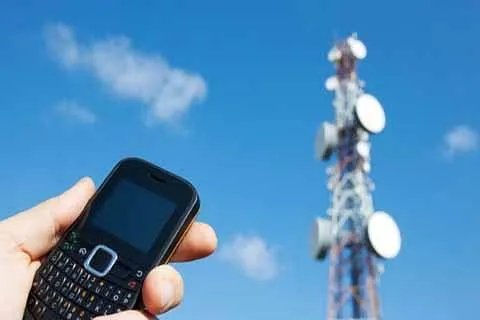The Union Communications ministry on Tuesday issued an order stating that “temporary suspension of telecom services” cannot be put into effect for more than 15 days. The ministry took the decision while issuing an order amending the “Temporary Suspension of Telecom Services (Public Emergency or Public Safety Rules 2017).
“The suspension order issued by the competent authority under sub rule (1) shall not be in operation for more than 15 days,” reads the order.
Reacting to the government order, National Conference vice-president Omar Abdullah said, “It should have happened last year so that J&K wouldn’t have been without telecom services for months.”
Taking to Twitter, Omar wrote: “Too bad they didn’t think about this last year. J&K wouldn’t have been without telecom services for months.”
After August 5, 2019, when the Government of India scrapped special Constitutional status of Jammu and Kashmir, a complete communication gag was enforced for several weeks. This did not only lead to suspension of mobile phone services but even landline services which hit the day-to-day life.
As per reports of the local business community, the communication gag last year caused huge losses to them especially the apple traders who couldn’t contact their commission agents in outside mandis as the suspension of mobile and landline services had coincided with peak apple harvest time. Similarly, the Valley had witnessed a communication gag in 2016 during the summer unrest when mobile calling was barred for several months. In 2016 and 2019, telecom companies also reported huge revenue losses due to suspension of services by the authorities.
Frequent suspension of Internet and mobile services in the Valley by the authorities during last several years has caused a body-blow to Kashmir’s economy resulting in losses worth almost Rs 4000 crore between 2012 to 2017, says a study conducted by Delhi-based think-tank International Council for Research on International Economic Relations ( ICRIER).
The study, “The anatomy of an Internet blackout: Measuring the economic impact of internet shutdowns in India,” says most adversely affected sectors by the Internet and mobile service shutdowns are e-commerce and general trade. It says tourism, IT services, press and news media, banking, education, healthcare, manufacturing and heavy industries have also been hit by internet shutdowns.
The Union Communication Ministry-run Department of Telecommunications (DoT) has during the last few years issued repeated advisories to several states, including Jammu and Kashmir that “internet shutdowns should be avoided as much as possible and must be the last resort”.
In order to regulate the mobile and internet shutdowns, Central government in September 2017 came up with rules to legislate the authority required and procedures to be followed to “temporarily suspend telecom services” in case of “public emergency or public safety”. Issued by the Ministry of Communications under the Indian Telegraph Act, 1885, these rules were codified as the Temporary Suspension of Telecom Services (Public Emergency or Public Safety) Rules, 2017. These rules confer the status of competent authority on the Union home secretary when the order is issued by the government of India. For a state government, the power lies with the state home secretary. In “unavoidable circumstances”, though, orders could be issued by an officer “not below the rank of a joint secretary to the government of India, who has been duly authorised by the Union home secretary or the state home secretary”.






